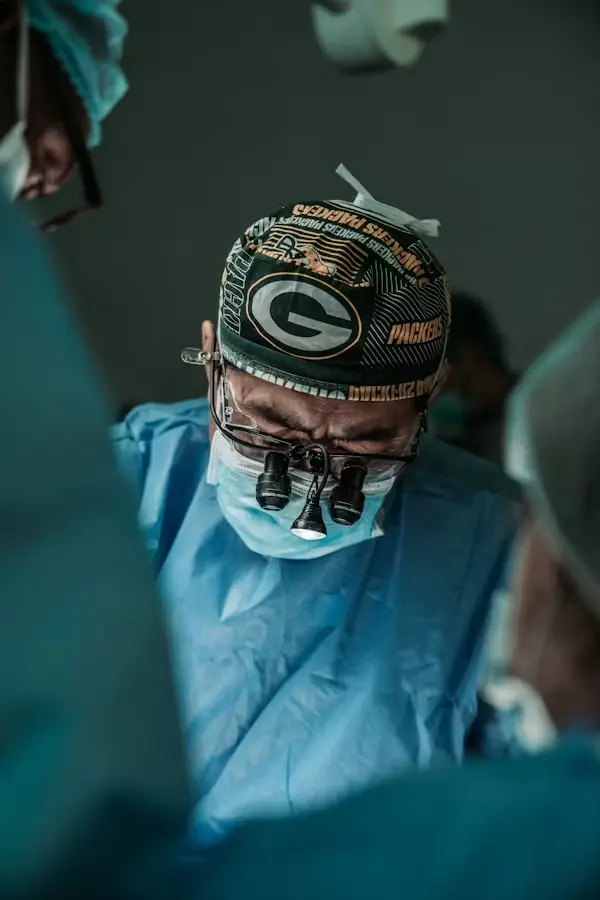Brain and spine issues can be terrifying. The thought of something going wrong with the control center of your body is enough to make anyone anxious. But knowledge is power, and understanding what neurosurgery involves can help ease those fears when facing potential treatment.
Many residents don’t realize that finding a qualified neurosurgeon in Ranchi is possible without traveling to larger metropolitan areas. The city now offers advanced neurosurgical care for various conditions that previously required patients to travel hundreds of kilometers for treatment.
What Exactly Does a Neurosurgeon Do?
Neurosurgeons aren’t just brain surgeons. They treat the entire nervous system, including the brain, spine, and peripheral nerves. Their expertise covers everything from removing tumors to repairing damaged discs in your back.
The decision to see a neurosurgeon usually happens after referral from another doctor. Maybe you’ve had persistent headaches that won’t go away, or back pain that shoots down your leg. These symptoms might lead to tests that reveal problems requiring surgical intervention.
Common Brain Procedures Available Locally
Brain Tumor Removal
Perhaps the most feared diagnosis is a brain tumor. The good news? Not all brain tumors are cancerous, and many can be successfully removed.
The procedure usually involves making an opening in the skull (called a craniotomy), removing the tumor, and then closing the skull. Recovery time varies based on the tumor’s size and location.
Many patients worry about waking up “different” after brain surgery. While there are risks, surgeons map the brain carefully to avoid areas controlling crucial functions.
Treatment for Brain Aneurysms
An aneurysm is like a weak spot in a water balloon. It’s a bulge in a blood vessel that could burst and cause bleeding in the brain.
Surgeons can place a tiny metal clip at the base of the aneurysm, stopping blood from entering it. Another option is endovascular coiling, where tiny coils are placed inside the aneurysm through blood vessels, preventing rupture.
The difference between getting treatment or not can literally be life or death, making local access to these procedures crucial.
Surgical Treatment for Epilepsy
Some seizure disorders don’t respond to medication. In these cases, surgeons might remove the small area of the brain causing seizures.
This might sound scary, but for many patients who’ve suffered from uncontrollable seizures for years, it’s life-changing. Imagine finally being able to drive, work, or just live without the constant fear of a seizure.
Spine Procedures That Can End Years of Pain
Disc Surgery
That nagging back pain shooting down your leg? It might be a herniated disc pressing on nerves. The pain can be unbearable, making even simple tasks like putting on socks nearly impossible.
Surgeons can remove the portion of the disc that’s pressing on the nerve. Many patients report immediate relief from the shooting pain, though complete recovery takes weeks.
Spinal Fusion
Sometimes vertebrae need to be fused together to stabilize the spine. This might sound extreme, but for people who’ve lived with crippling back pain for years, it can be the difference between disability and returning to normal life.
The surgeon uses bone grafts and sometimes metal implants to connect two or more vertebrae. Recovery takes months but can provide lasting relief from chronic pain.
Spinal Cord Stimulation
For persistent pain that hasn’t responded to other treatments, a device similar to a pacemaker can be implanted to send mild electrical pulses to the spinal cord. These pulses interrupt pain signals before they reach the brain.
Patients often describe the sensation as a gentle tingling replacing the pain. For someone who’s lived with chronic pain for years, this can feel like getting their life back.
The Reality of Neurosurgery: Risks vs. Benefits
Let’s be honest – any surgery has risks. Brain and spine procedures especially so. Infection, bleeding, and nerve damage are possibilities. Some patients experience changes in sensation or movement.
But here’s the thing – these procedures aren’t performed unless the potential benefits outweigh the risks. Living with an untreated brain tumor or debilitating back pain carries its own serious risks to health and quality of life.
Finding the Right Surgeon
Not all neurosurgeons specialize in the same procedures. Some focus primarily on brain surgery, others on spine. Ask about your surgeon’s experience with your specific condition.
Don’t be afraid to ask about success rates, potential complications, and alternative treatments. A good surgeon welcomes these questions.
Trust your instincts, too. You should feel comfortable with the surgeon who will be operating on your brain or spine. If something feels off, it’s okay to seek another opinion.
The fear of brain or spine surgery is natural. But sometimes, the bigger risk is doing nothing. With qualified neurosurgeons now practicing in Ranchi, residents no longer need to choose between traveling far from home for care or living with potentially dangerous conditions.
Knowledge replaces fear with understanding. And sometimes, surgery replaces pain with relief.
Also Read-Tech Console DefStartup: Empowering Gaming Innovation


